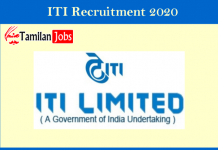
Some lessons are learnt the hard way. This should not be the case with your insurance policy. As discussed in the previous pages, the life cover should be big enough to encompass all outstanding liabilities and future goals. But one also needs to tick the right boxes when it comes to the other aspects of the policy. For example, the tenure of the policy should not end when you need it most. Also, don’t commit mistakes that can lead to the lapsation of the policy or rejection of the insurance claim. After losing a loved one, nothing can be more devastating for a family. Here are some pivotal issues to keep in mind when you buy a term insurance plan.
Provide correct details
An insurance contract is based on the principle of utmost good faith. It becomes null and void if the insurance company discovers that the policyholder has given incorrect information in the form. The premium for non-smokers and teetotallers is lower but don’t get tempted to tick ‘no’ in the application form. Concealment of lifestyle habits or medical conditions can lead to rejection of claim later on. If you smoke or drink, mention that. If your family has a history of diabetes, don’t hide the fact. It will bump up the premium by a few thousand rupees but will not jeopardise the insurance claim by your nominee. Remember, every year about 2% of life insurance claims are rejected.
Insist on medical test
Term plans are high-value covers so companies usually put buyers through extensive medical tests before issuing them a policy. However, in some cases, a company may not insist on a medical test but merely ask the buyer to give a declaration of good health. This can work against you. In case of early death, the company may try to show that the buyer had lied and was already ailing when he bought the policy. If the buyer goes through the medical tests, the onus then shifts to the company and the doctor who conducts the examination. They will not be able to dispute the insurance claim by the policyholder’s nominee. As a rule of thumb, buy only if the company does a full medical test. Also, after three years of issuance, no insurer can deny the claim or challenge the disclosed information.
Don’t look at price alone
Pure term is the cheapest form of life insurance because it has no investment component. For as little as Rs 8,000-10,000 a year one can buy a cover of Rs 1 crore. But the low premium alone should not be the deciding factor. Buy from an insurance company that has a squeaky clean reputation in claim settlement and a healthy record of customer orientation. What’s the point of buying a cover that costs Rs 1,000-2,000 less but you are not sure if your family will get the insurance claim after you are gone?
Get the tenure right
A term plan is meant to replace the income of the policyholder in case of death. So, the insurance policy should cover him till he intends to work. This can vary from 55 years to 65 years, or even longer in some cases. Ordinarily, a person should take a cover till the age of 60-65 years. It’s no use buying a plan of 15-20 years which will end when the policyholder is in his 50s. A person’s insurance needs are highest at that stage of life. Buying a new policy in your 50s will be very costly. The person might even be denied the cover if he is not keeping good health.
Some companies also offer very long-term covers that extend up to 80-90 years. A large cover that extends till that advanced age helps people leave behind a legacy for their heirs. But it also creates grounds for a moral hazard. In some unfortunate cases, the insured person may be denied urgent medical attention by the family so that they can get the insurance money.
Periodicity and mode of payment
Once you have bought a term plan, don’t let it lapse by missing the renewal premium. One way to ensure against missing the premium is to give an ECS mandate to your bank. Even if you forget, your bank will pay the premium. But it could still lapse if there are not enough funds in your account. A better option is to give standing instructions to your credit card issuer for paying the premium when it gets due every year. That way the premium will be paid in time and you will only have to settle the credit card bill.
Most insurers give buyers of online term plans the option to pay the premium annually, half-yearly, quarterly or monthly. The monthly option is the costliest, but the outflow is very low and therefore very attractive for buyers. Unless cash flow is a constraint, it is best to opt for the annual premium option. This reduces the chances of you missing a premium because instead of 12 (or 4) times a year, the premium is due only once in a year.






























